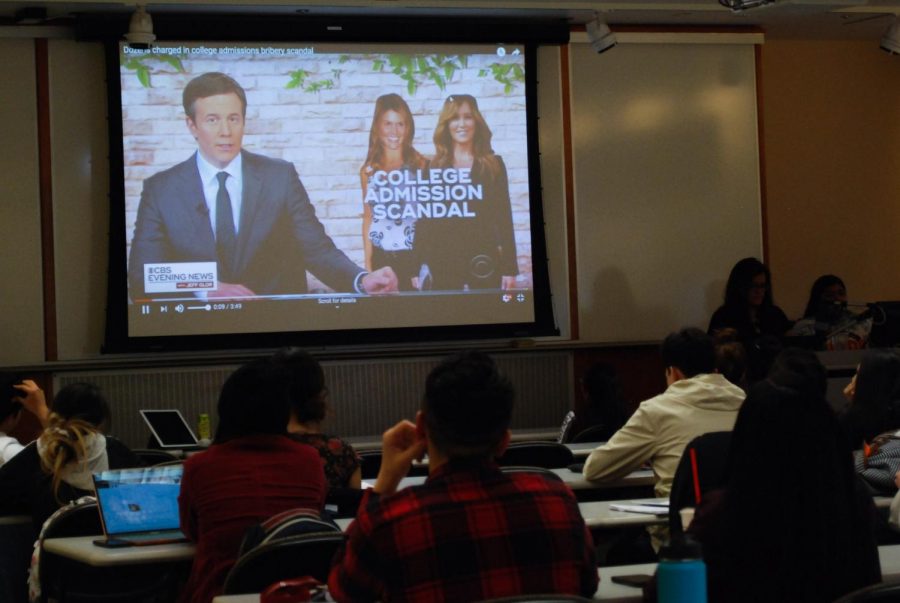Students discuss college admission scandal
Alleged conspiracy, bribery call value of degree into question
OLIVIA WOLF | THE DAILY EVERGREEN
Students attend a MEChA meeting where they discuss the College Admission Scandal on Monday evening in the CUE.
March 19, 2019
WSU students and members of Movimiento Estudiantil Chicanx de Aztlan (MEChA) discussed the recent national college admissions scandal and affirmative action during their meeting Monday night.
Nallely Sanchez-Aguilar, MEChA co-chair showed a four-minute video from CBS Evening News, which explained events centered on the scandal, like cases of bribery, cheating on entrance exams and admissions under false pretenses of being student-athletes.
The students then separated into small groups to discuss their thoughts and opinions about the issue.
Gena Franco, gender, identity and sexuality chair, said it is important to have a space where discussions are facilitated and where students can express their opinions. Franco is also the economic and self-determination co-chair for MEChA.
After a few minutes, the students came together and expressed their thoughts to the group as a whole.
Joel Aleman, MEChA member, said instances like these have called the validity of degrees into question.
When affirmative action is considered, this situation has taken spots from people who really wanted an education, he said.
“When upward mobility is denied, a person’s low status remains low and there is no opportunity for advancement,” Aleman said.
Sheyla Gonzalez, a member said she had read an article, which talked about people who graduated from a university where they had bribed officials to be admitted.
“It’s frustrating how this has been going on for a while,” she said.
Franco said when people who were admitted under these circumstances graduate and hold positions of power are confronted on the validity of their skills they become defensive.
“They insist they’ve earned what they have in life, which increases their sense of entitlement,” she said.
















